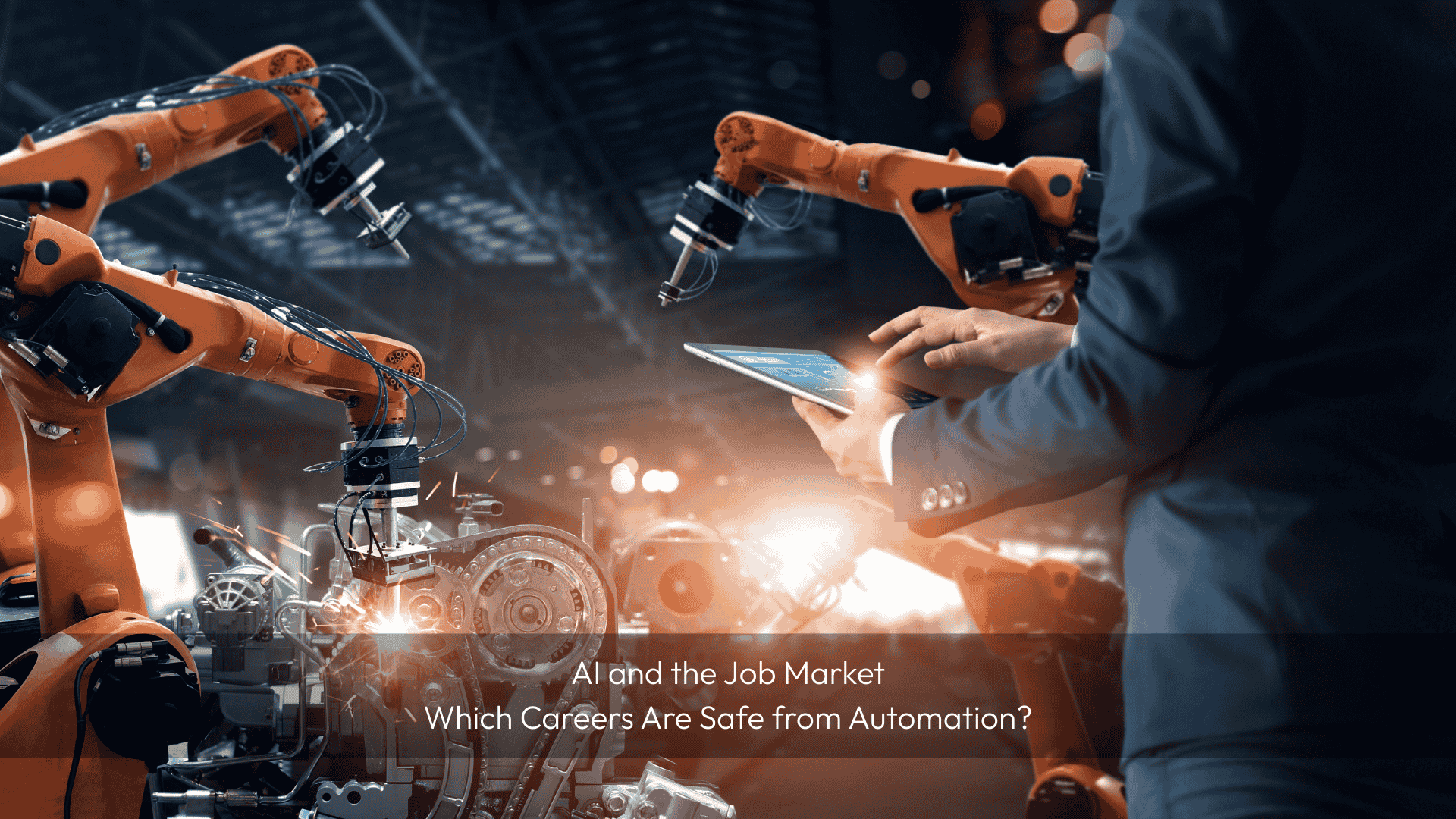With AI rapidly transforming industries, many workers fear that automation will replace their jobs. From AI-powered chatbots handling customer service to robots assembling products, technology is making some roles obsolete while creating new opportunities.
But which careers are safe from automation? Let’s explore the future of work and which jobs AI is least likely to replace.
How AI is Changing the Job Market
AI excels at repetitive, data-driven, and predictable tasks. Jobs that involve manual labor, data entry, or rule-based decision-making are at the highest risk.
📉 High-Risk Jobs (Most Likely to Be Automated)
🔹 Data entry clerks
🔹 Factory & warehouse workers
🔹 Customer service agents (chatbots replacing call centers)
🔹 Retail cashiers & bank tellers
🔹 Truck drivers & delivery services (self-driving tech)
While many routine jobs disappear, AI creates new opportunities in tech, creativity, and human-centered fields.
Careers That Are Safe from AI (For Now) 🚀
🧠 1. Jobs That Require Emotional Intelligence & Human Touch
AI lacks empathy, creativity, and social skills, so jobs involving human connection are more challenging to automate.
✅ Psychologists & Therapists – AI can analyze data but can’t replace real human connection in therapy.
✅ Teachers & Educators – AI can assist learning but can’t fully replace in-person teaching.
✅ Social Workers & Counselors – Empathy-driven roles need human judgment and understanding.
💡 Future-Proof Tip: Focus on soft skills like empathy, leadership, and adaptability.
💡 2. Creative & Innovation-Based Careers
AI can generate text, art, and music but struggles with original, deep creativity.
✅ Artists, Writers, and Designers – AI assists but can’t replace true creativity and storytelling.
✅ Marketing & Branding Experts – Human intuition is key to understanding trends and emotions.
✅ Research & Innovation Roles – Inventing new technologies requires human curiosity and problem-solving.
💡 Future-Proof Tip: Leverage AI as a tool, not a replacement—use it to enhance creativity.
🛠 3. Skilled Trades & Hands-On Work
AI can process data but can’t easily replace hands-on, technical skills in physical environments.
✅ Electricians, Plumbers, & Mechanics – AI can diagnose problems, but humans are still needed for repairs.
✅ Construction & Engineering – Robots can assist, but humans oversee and problem-solve on-site.
✅ Chefs & Culinary Experts – AI can suggest recipes, but cooking requires human creativity and taste.
💡 Future-Proof Tip: Skilled trade jobs are increasingly valuable—consider careers in craftsmanship and repair work.
🩺 4. Healthcare & Medical Professions
AI is transforming healthcare, but human doctors and nurses are still irreplaceable.
✅ Doctors & Surgeons – AI assists in diagnosis, but human decision-making is critical in treatment.
✅ Nurses & Caregivers – AI can monitor health, but emotional support is essential.
✅ Physical Therapists – AI can guide exercises, but human motivation and adaptation are key.
💡 Future-Proof Tip: Medical fields are evolving—learning to work alongside AI will be essential.
📊 5. AI & Tech-Related Jobs
Ironically, AI can’t replace those who build, manage, and improve it.
✅ AI & Machine Learning Engineers – Someone has to train and refine AI models.
✅ Cybersecurity Experts – AI creates security risks, and humans must avoid cyber threats.
✅ IT & Cloud Computing Experts – AI helps manage data, but human expertise is required.
💡 Future-Proof Tip: Learn AI-related skills to stay relevant in the tech industry.
How to Future-Proof Your Career Against AI
✅ Develop Soft Skills – Emotional intelligence, leadership, and creativity are AI-resistant.
✅ Embrace Lifelong Learning – Stay updated on new tech and industry trends.
✅ Adapt to AI Tools – Learn how AI can enhance your work instead of replacing you.
✅ Focus on Problem-Solving – Critical thinking and adaptability are hard to automate.
Final Thoughts: AI as a Tool, Not a Threat
AI is not just taking jobs—it’s transforming them. While routine tasks are being automated, new opportunities are emerging. The key to staying ahead is adapting, learning, and embracing human skills that AI can’t replicate.
🚀 The Big Question: Do you think AI will create more jobs than it eliminates? Why or why not?
Let us know your thoughts!

